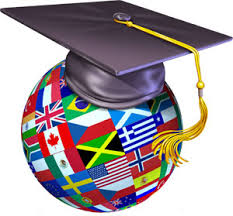What do neuroscience and the International Baccalaureate programme have in common? More than you might think!
Bruno della Chiesa, an educational neuroscientist and Harvard University professor, discussed the relationship between neuroscience- and the study of how students learn- and the IB in a recent issue of IB World Magazine.
Read the full story, and check out a summary of his thoughts below:
1. Learning other languages.
Language acquisition is an important topic in neuroscience, and one that the IB puts at the heart of its curricula. della Chiesa said he admires the IB because the programme makes educating children in multiple languages a priority.
“Learning a second language…unlocks an individual’s ability to develop cultural (and therefore self) awareness,” he said in the article.
2. Lifelong learning.
Neuroscience has shown that the brain’s plasticity allows an individual to learn long into old age. The IB, meanwhile, makes it its aim to promote lifelong learning.
“It is excellent that the IB is explicitly promoting lifelong learning,” della Chiesa said in the article.
At BSB, our students are not only taught to love learning, our educators and parents continue their learning too! A few times each term, we host Parent Learning Evenings, bringing in speakers to address staff and parents on a variety of educational topics. This year, we’ve had speakers on early learners, cross-culture kids and the teenage brain!
3. Global awareness.
In many ways, the IB is the epitome of global learning. Used in more than 146 countries to teach more than 1 million students, international mindedness is a core component of all IB programmes.
At BSB, IBDP students are encouraged to share their learning, not only with their classmates but with students and educators around the world, using social media, Nord Anglia Education‘s Global Classroom and other forms of technology to spread their knowledge around the globe.
In the IB World article, della Chiesa said this kind of learning is more important than ever.
“What we understand about neuroscience and language learning is at the head of developing that global awareness,” he told the magazine. “The IB provides a space for students to get acquainted with other cultures and develop a multicultural awareness, which some might not have the benefit of at home.”
4. Using the fabulous potential of the human brain.
“The more teachers know about the ‘learning brain,’ the deeper they will be able to reflect on the complexity of learning processes, helping them to better understand their students’ learning,” della Chiesa told IB World.
The IB helps educators do just that by adapting to developments in science and technology, and embracing the use of technology in the classroom.
At BSB, we work hard to ensure that both educators and students understand how they best learn. Students are taught from an early age to identify the learning and studying methods that work best for them, and develop these skills over their time at our school.
Check out the BSB website to learn more about our international curricula and the IBDP!


